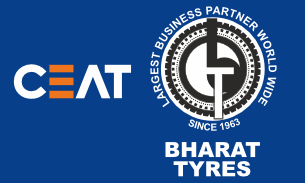Tyre Maintenance Guide
How to Improve Performance of Tyres

Most of us are obsessed with the performance of our cars but very few realize that the performance of your tyres plays a critical role in that. Keeping your tyres in top shape and taking care of some vital points will improve the performance of a tyre and increase its lifespan considerably. Let’s walk through some of those important considerations.
Use tyres of the same brand
You must always use the tyres of the same brand and of good quality like the CEAT. Using the full set of Ceat tyres at both axles and keep the spare one same as well gives you the maximum radial advantage. Different brands have different technologies and tyres specifications. Mixing them creates a misbalance and all four tyres are not able to keep up with each other. This makes the tyres wear out fast and seriously impact their performance.
Other tyre rules for mounting and de-mounting
We often miss some important rules for mounting and de-mounting of tyres which seriously impacts its performance. Some key points to remember are:
- A new tube of the same brand must always be used with a new tyre. You must never use a second-hand one or cheap tube from another brand.
- The tube must be the designated one for that particular type and size of tyre.
- The right combination of tyre and rim must be used.
- The entire rim surface, tyre interiors and all surfaces must be absolutely clean before mounting.
- Tyre beads must always be lubricated with a mild soap solution before mounting and de-mounting.
Always choose the right tyres
Most people think that all tyres are the same but it is not so. Using the wrong tyres can hobble your car’s performance and its ability to tackle any tough weather challenges. Primarily tyres are divided into summer, winter and all-season types. Unless you have extremely cold weather; it is best to go for all-season tyres which are most cost-effective. Otherwise, you can opt for seasonal ones which are designed to tackle the specific weather and climatic challenges. You also have tyres optimized for performance or fuel-efficiency. You can choose one depending on your requirements.
Always ensure the right pressure inflation
You must always check regularly for the right tyre pressure. It ensures better grip and a lower rolling resistance. Both under-pressure and over-pressure are detrimental to the tyre’s performance and lifespan. If you are going to ride a hilly region or slightly more speed than the recommended one; then you can fill your tyre with just a smudge higher air pressure. This will make the engines work lighter and help the car handle turns better. However, the air pressure must be restored back to its recommended value immediately afterward to keep tires in good shape and prevent early wearing.
Keep your car as light as possible
A lighter car raises its power-to-weight ratio. Eliminating excess baggage from the car lightens the pressure on the tyre and helps it perform to the optimum. Each tyre has its own specific load capacity which is mentioned in its specifications. Staying within it always maximizes its performance. The load distribution must also be even so that undue pressure in the tyres can be avoided.
Check your car speed
The primary material of construction of a tire is rubber. Excessive speed increases the tyre running temperature. This causes the modulus or the stiffness of the rubber to go down which impacts the tyre performance adversely and also triggers tyre wear and tear. Thus, speed should always be more on the average side than the higher side.
Wheel balancing
Improperly balanced tyres trigger vibrations which reduced driving comfort as well as the performance and life of tyre.
Tread size
You must always choose the right tread size of the tyre installed as the mileage and performance of the tyre gets reduced by 10% for every size of the tread that is undersized.
Wheel alignment
By proper wheel alignment, we mean all steering and suspension components set according to the specified instruction for the car. Proper alignment prevents tyre wear and tear and help it give its optimum performance.
Road conditions
The surface conditions of the road on which the wheels are moving will naturally have its impact on the tires. Thankfully, Ceat manufactures tyres that are suited for specific conditions like tyres that suits the Indian road conditions to the tee.
Seasonal effects
Climatic conditions have a direct impact on the structural durability and performance of the car. In case the temperature difference between the summer and winter season is significantly wide; it is better to opt for seasonal tyres and get optimum performance.
Vehicle maintenance
Proper maintenance of the vehicle helps get the maximum performance out of your tyres as it eliminates undue pressure on it.
Rotate the tyres
The tyres must be rotated after every 10 to 12 thousand kilometres or every six months. This helps achieve uniform wear and help them give a balanced and uniform performance. The front tyres often wear out faster than the rear ones. You must also remember to use your spare tyre if you see even the slightest wear.
Wrapping up
Heeding to the above points and driving with due care and diligence will definitely enhance the lifespan and performance of the tyres by miles.


